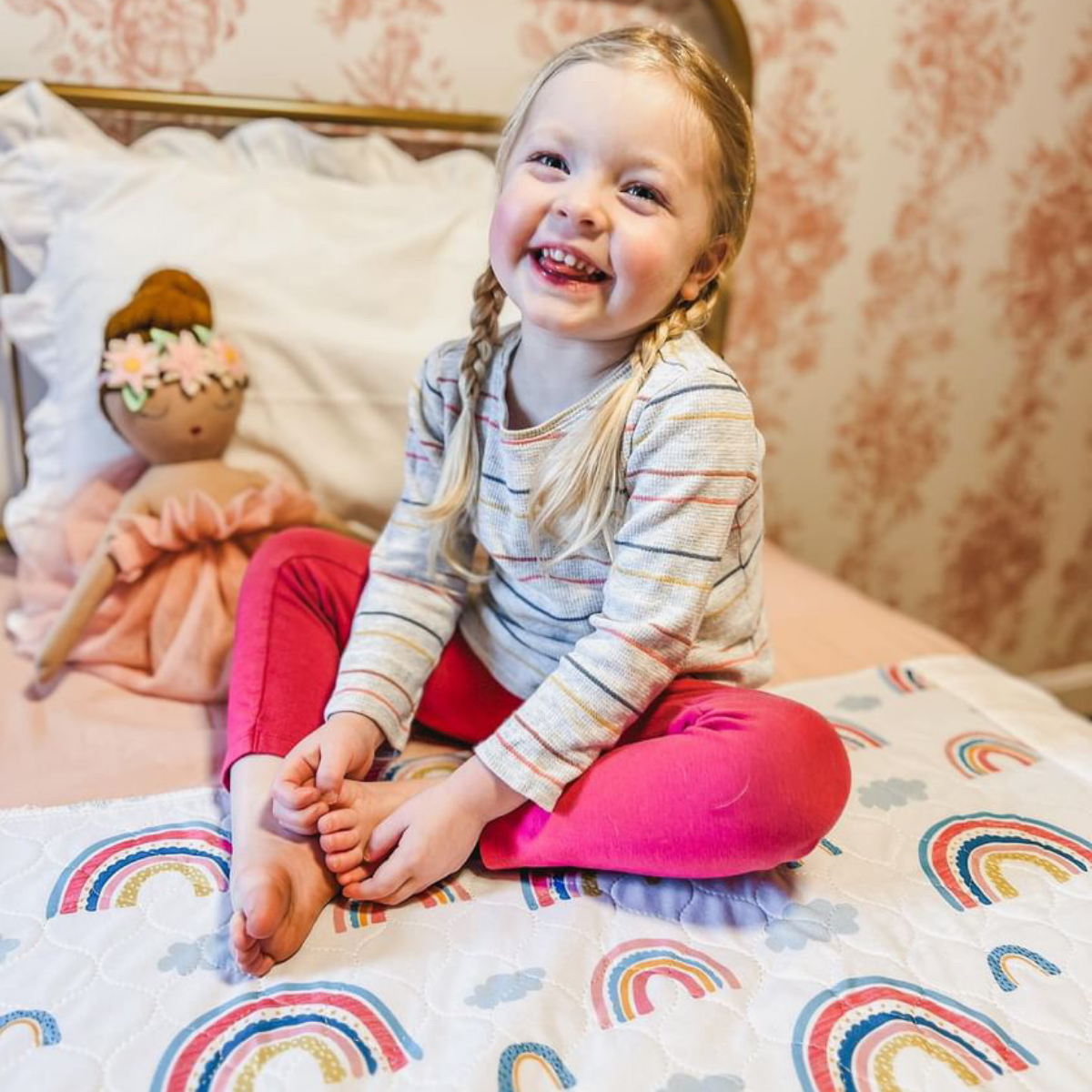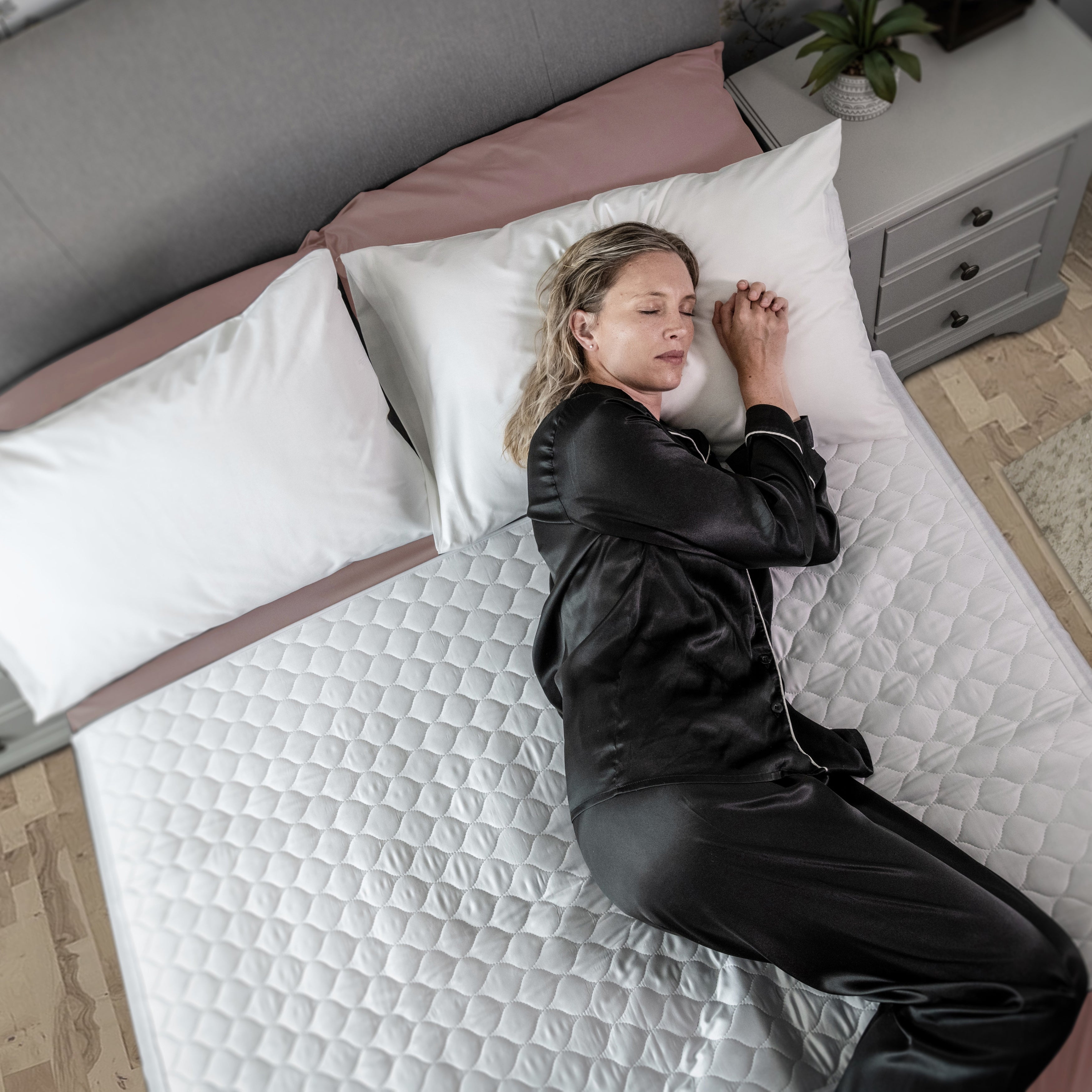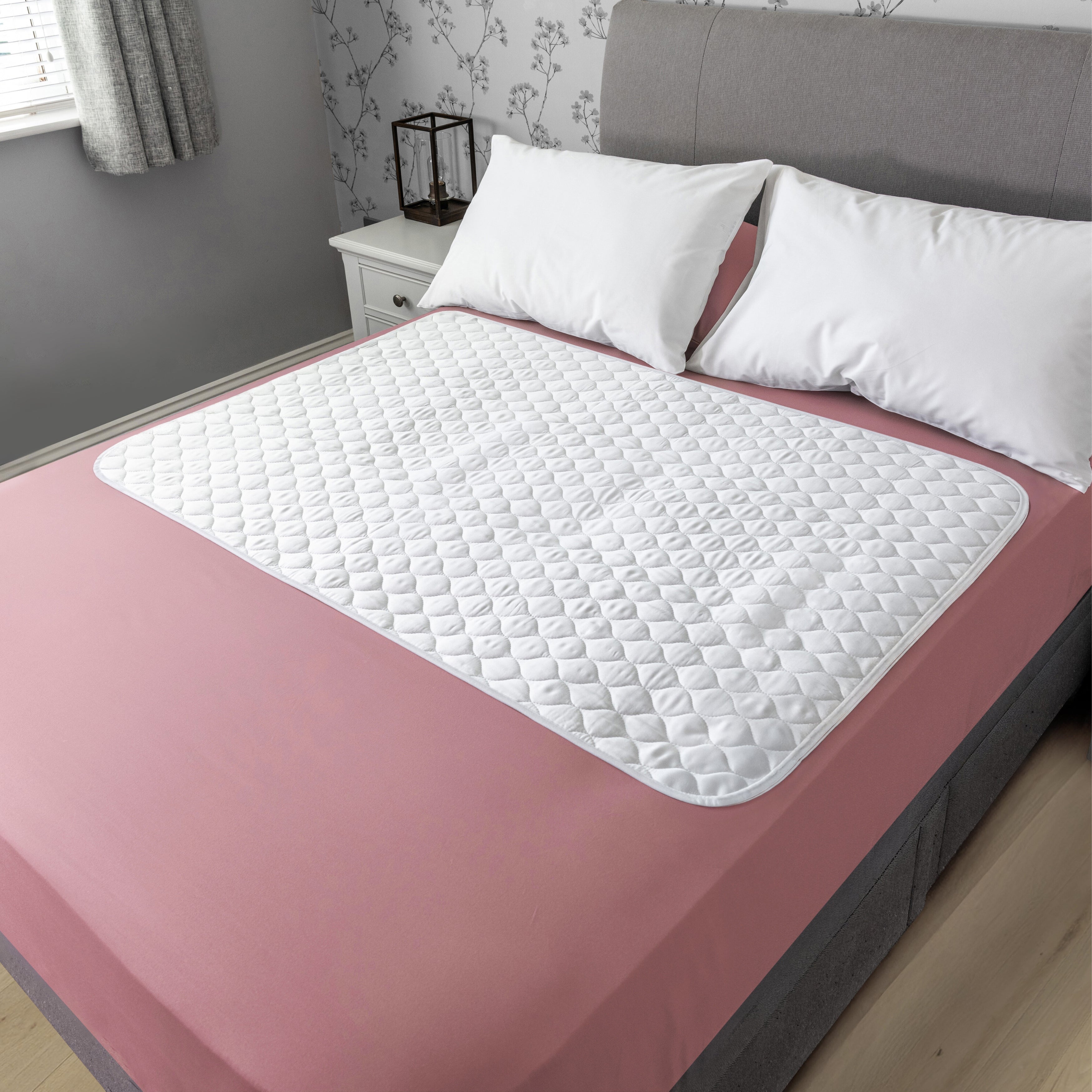In our previous blog, we looked at the link between anxiety and adult bedwetting, but there’s so much more to the story. To explore the topic in more depth, we spoke with Ian Pittaway - a psychotherapist with years of experience - about the emotional and psychological layers behind this often-misunderstood condition.
Bedwetting in adulthood - also known as nocturnal enuresis – is most commonly associated with physical conditions. While physical causes are more common, emotional and psychological factors are often overlooked. Ian helped us explore how early experiences, mental health challenges, and patterns of emotional processing can all play a role in adult bedwetting.
The First Step: Rule Out Medical Causes
Adult bedwetting can stem from physical conditions such as urinary tract infections, diabetes, bladder issues, or neurological conditions. Certain medications may also affect bladder function. That’s why Ian always recommends ruling out any underlying medical conditions first.
He explained, “In adults, bedwetting is a symptom of something either physical or emotional. So the first thing to check is that there isn’t a purely physical reason behind it.”
Only after those possibilities have been ruled out should therapy begin exploring the emotional and psychological aspects of the condition.
Childhood: The Crucible of the Personality
Psychologists widely agree that early childhood experiences lay the foundation for how we relate to ourselves, to others, and to stressful situations. Ian refers to childhood as, “The crucible of the personality. It’s in childhood that our emotional resources are built, and our frame of reference for what life is like is formed.”
This mirrors psychological research on early attachment. According to attachment theory, when a child consistently receives comfort during distress - such as being soothed when a toy goes missing - they build a foundation of emotional security. These children are more likely to grow into adults who can regulate stress effectively.
But if those emotional needs are dismissed, ignored, or punished, the brain adapts to expect rejection or danger. This can result in an insecure attachment style and poor emotion regulation later in life. If a person grows up without tools to manage overwhelming feelings, those feelings may instead show up through the body - especially during sleep, when defences are down.
Anxiety and the Freeze Response
Anxiety is a common psychological issue tied to adult bedwetting, but many people misunderstand what anxiety actually is. It’s not just a mental worry - it’s a whole-body stress reaction.
Ian explained, “Anxiety isn’t a condition - it’s a symptom. We’re anxious about something. So psychotherapeutically, for me, the first question is, what is it? What is this person worried about?”
When the brain senses danger or overwhelm, it triggers the fight, flight or freeze response. These are automatic survival responses managed by the nervous system. If the brain believes we can fight or run away, we do - but if it believes we’re powerless, the body may go into a freeze state.
When discussing the connection between anxiety and bedwetting, Ian described it as, “When the body shuts down, it either goes completely rigid or completely limp. And when it goes completely limp, this is where people may wet themselves because they’re so afraid.”
This is the same response seen in cases of extreme fear, trauma, or helplessness - especially if the person has felt unsafe before. During sleep, the body can re-enter that fear state unconsciously, leading to a temporary loss of bladder control.
Depression: When the Whole System Slows Down
Another factor that can lead to bedwetting is depression. This is more than feeling low - it’s a condition that affects how the brain and body function together. Depression can cause physical exhaustion, trouble concentrating, slowed movements, and disrupted sleep. When explaining how depression affects a person Ian described it as, “When the whole system - physical, emotional, cognitive - grinds to a halt.”
Depression is a result of emotional experiences that haven't been fully acknowledged or worked through. When these feelings remain unresolved, they can build up over time and contribute to ongoing low mood and other symptoms. This may show up as difficulties in managing emotional responses - sometimes called emotional dysregulation. When people regularly suppress or avoid expressing how they feel, it can place added pressure on mental wellbeing and potentially increase the risk of depression and related challenges.
He later used a powerful analogy to demonstrate this idea by saying, “It’s like a blocked sink when you keep putting more and more things down it and it gets more and more blocked. Depression is when the whole system breaks down and it’s because somebody has not been processing their emotions. If emotions aren’t processed, they build up. And eventually, everything stops working.”
Research shows that depression affects certain areas of the brain, including the prefrontal cortex (involved in thinking and decision-making) and the amygdala (which manages fear and emotions).
People with depression may experience muscle relaxation during sleep that affects their bladder control. In this case, bedwetting isn’t a disorder in itself - it’s a symptom of the deeper issue. Helping someone unblock and express those repressed emotions through therapy can often lead to improvement in both mood and physical symptoms.
Carrying the Past: How Old Emotions Affect the Present
One of the most powerful ideas Ian explored was the concept of transference - where we unconsciously carry past emotional patterns into the present.
Transference is when our past emotional experiences influence how we react to situations in the present - often without us realising it. If someone grew up feeling unsafe, ignored, or unsupported, their mind and body may still be on the lookout for those same threats today, even if the current situation is very different. In everyday life, this can lead to emotional responses that feel sudden or overwhelming, because something in the present has stirred up feelings from the past. For example, someone might feel anxious in a relationship or avoid certain situations - not because of what’s happening now, but because it reminds them (consciously or not) of an earlier experience that left a mark. He described how it might feel as, “We’re always on the lookout - we’re bracing, trying to stop it from happening again. And when something in the present reminds us of it, we bring back the emotional and physical responses from back then.”
Transference can play a subtle but powerful role in adult bedwetting, particularly when unresolved experiences from childhood are involved. When something in the present day emotionally resembles a past situation - such as feeling vulnerable, criticised, or out of control - the body may respond as though that earlier event is happening all over again.
Understanding and working through transference can help people make sense of strong emotional reactions and start to gently untangle what belongs to the past and what’s happening here and now. Ian described how this process might work in his sessions with clients by saying, “The psychotherapeutic process is we unbox it, we look at it and we see it for what it is. We separate the past and the present. The past was dangerous, but the present isn't. The present is the present - it's not the past.”
The Role of Psychotherapy: Why Feeling Heard Matters
Toward the end of our conversation, Ian reflected on the deeper purpose of psychotherapy, and why it can be such a powerful tool for people experiencing issues like adult bedwetting.
“The key thing psychotherapy does is find out about somebody’s developmental experience. In other words, what they have experienced growing up when the personality was formed. We find developmental gaps, and we find ways of filling them in.”
In many cases, this means helping someone identify where emotional support may have been missing during childhood - and how that affects their sense of safety and resilience in adulthood. Those early gaps can explain why certain situations feel overwhelming now, or why the body responds in unexpected ways.
And for some, the most important part of therapy is simply being listened to - often for the first time.
“Just the fact of somebody sitting in a room opposite them really listening to what they're saying … Some people have never had that experience before.”
Research suggests that being truly heard and validated in a consistent, supportive space can calm the nervous system and promote emotional healing. In psychotherapy, it’s often this deep listening that begins to ease the emotional tension the body has been holding.
What is important to understand is that adult bedwetting is rarely random. It’s often a signal - from the body and the nervous system - that emotional support is needed. Whether it’s unresolved trauma, depression, or early emotional experiences, these underlying factors often lie beneath the surface. With therapy, self-reflection, or simply starting a conversation, healing becomes possible.
Our Reflections
At Hygge Sheets, we know how personal this journey can be. That’s why our products are designed with care - to offer comfort, protection, and peace of mind, no matter what part of the journey you’re on. Support shouldn’t end at understanding – it should stay with you on the journey.
We would like to say a special thank you to Ian for supporting us in our journey to understanding the deeper issues associated with adult bedwetting and allowing us the opportunity to gain these insights from him.
Ian has worked as a psychotherapist for many years in the West Midlands and has written many detailed and thought-provoking articles.
You can find his website here: https://ianpittawaytherapy.uk/






























